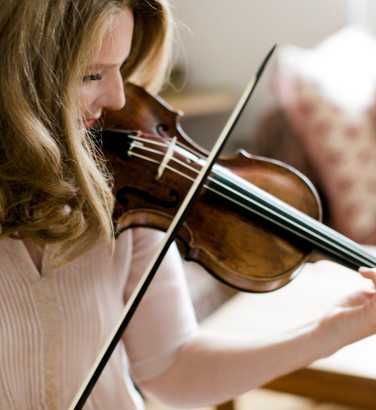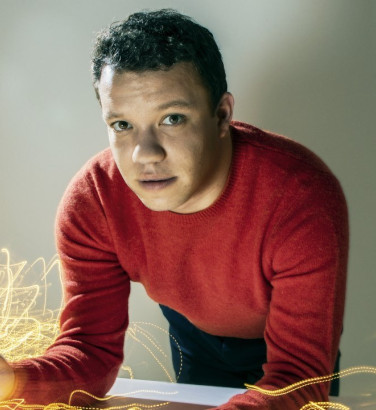
Errollyn Wallen: "anyone from anywhere can be a composer"
2 Oct 2023
News Story
Errollyn Wallen is among today's top 20 most performed living composers. She may be familiar to Scottish audiences for her opera Dido's Ghost, an expansion of/sequel to Purcell's Dido and Aeneas which was performed to great acclaim at the 2021 Edinburgh International Festival. Her book Becoming a Composer is published by Faber on 31 October.
We are delighted that Errollyn agreed to a short interview ahead of the premiere of her Dances for Orchestra (a commission by the SCO, Irish Chamber Orchestra and Swedish Chamber Orchestra) at our Appalachian Spring concerts in early November 2023.
You were born in Belize, moved to London as a young child and are now firmly established in Scotland. What have these different cultures brought to your music?
I also grew up with a strong connection to New York and I feel that living in all these different places has enriched my understanding of people. Music is, after all written for people and every type of music has its own codes and reference points. I am fascinated by the universal elements of music as well as the specifics of different cultures and customs.
Just the fact of thinking about these things inspires me to compose.
It’s probably safe to say not everyone would choose to live in a lighthouse! What difference has this made to you, personally and professionally?
Looking out every day at the Atlantic and at the huge expanse of sky all around me has significantly improved my wellbeing and productivity. The absolute quiet has revolutionised my working life.
It’s also marvellous to think I live in a building with such an heroic provenance!
Composing Dances for Orchestra was a joyful experience.
You have a direct link back to the great Nadia Boulanger (via Nicola LeFanu and Thea Musgrave). To what extent is representation – not just as a female composer, but one of colour – significant to you?
I also have a direct link to Schoenberg as my teacher, Nicola LeFanu studied with his pupil Egon Wellesz. What has been most important to me is that I have made my life as a composer despite setbacks and closed doors when I was starting out. The calling to be a musician has been stronger than any other consideration.
Anyone from anywhere can be a composer. If, along the way, I have helped to dispel the myth that a composer is only white and male, that can only be a good thing.
What can you tell us about Dances for Orchestra?
Composing Dances for Orchestra was a joyful experience. Every note was composed with the idea of dance and movement as being integral. I draw loosely from different dance forms such as the sarabande and waltz but I have also made up imaginary dances. The work is full of contrasts with a sustained energy running throughout. I specifically asked for Ryan Bancroft to conduct the work as he, like me, studied dance and has such a magical way with orchestras.
Finally, are there any of your works you wish would get more exposure?
I have composed 22 operas and would love operas such as The Silent Twins, Quamino’s Map, to get a chance on the main stage of an opera house. I am thrilled that Dido’s Ghost (made during Covid) will be going to San Francisco with Philharmonia Baroque Orchestra and Chorale in November.
Related Stories
![]()
The Great Grumpy Gaboon: a chat with Jay Capperauld and Corrina Campbell
30 December 2024
What is a Gaboon, and why is it grumpy? We chatted to the creators of our new Family Festival to find out ...![]()
Rachel Podger: "I'm especially fond of the Polonaise in the First Brandenburg Concerto"
9 December 2024
The feted British violinist talks to us about her love for the Brandenburg Concertos and more.![]()
Ryan Bancroft: "a conversation with the leader of a Finnish orchestra changed how I heard Sibelius"
30 September 2024
We speak to conductor Ryan Bancroft about music from (his not quite native) Scotland and Scandinavia.


